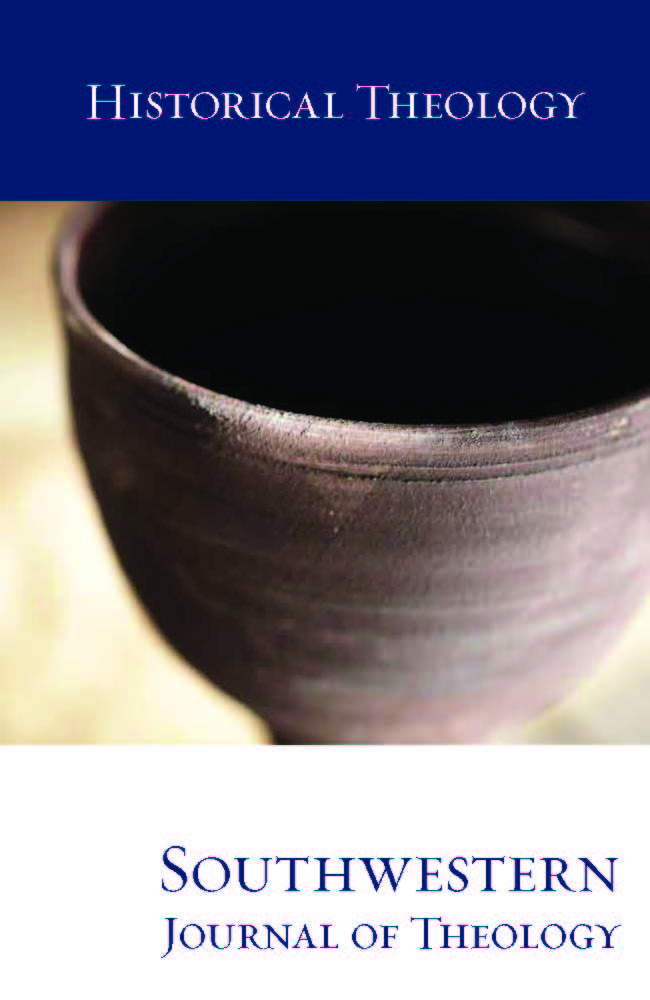
Historical Theology
Southwestern Journal of Theology
Volume 57, No. 2 – Spring 2015
Managing Editor: Terry L. Wilder
Edited by Paul Copan and William Lane Craig. Nashville: B&H Academic, 2013. 336 pages. Paperback, $24.99.
Come Let Us Reason exemplifies a substantive-yet-simple approach to popular-
level apologetics. While this is a text on apologetics, it is also a book on the Christian worldview. The authors engage with contemporary issues and demonstrate the superiority and comprehensive nature of Christian thought. The defense, then, is both positive and negative. Positive in supplying reasons for believing Christianity and negative in criticizing other views. As the title suggests, the authors come with the assumption that all of biblical thinking is undergirded by reasonable and comprehensive thinking—which the authors demonstrate throughout the book through logical analysis.
By way of summary, the book is divided in five sections. First, the book covers apologetics, culture and the kingdom of God. In it, there are two very practical chapters concerning the move from apologia to evangelism and practical helps for women to develop an apologetic mind. Additionally, Moreland carefully delineates the relationship between kinds of postmodernism and an pluralism. Second ,the book addresses the God question. Herein, the authors cover an argument for God, the problem of doubt, and an enemy of Theism—naturalistic atheism. Part 3 addresses the matter of the historical Jesus and the reliability of the New Testament. Issues covered include authorship and recent criticisms of the Gospel portrayal of Jesus. In part 4, the authors address the relationship of Israel to other religions. This is clearly important to Christian thought because Christianity finds its origins in Israel with Judaism, thus the ethical tensions that emerge there create potential problems for Christians. Finally, the last section puts forward important and fresh criticisms of both Islam and Hinduism—two religions that are gaining a greater hearing.
Four characteristic attributes describe the whole of Come Let Us Reason. It is at once analytic, comprehensive, edgy, and academically sophisticated. This in itself is impressive and unique to this volume in contrast to others.
While all the chapters are analytic in nature, there are two that stand out as exemplifying the virtues of an analytic approach (i.e. an analytic philosophy method characteristically logical, clear, precise and detailed). Both Moreland and Craig, display the virtues of an analytic approach. Moreland moves systematically from metaphysics to ontology, epistemology, and finally to ethics/aesthetics. Moreland argues that a consistent postmodernism leads to pluralism, yet not vice versa. Helpfully, Moreland displays such care with parsing out the relations between the views making this chapter clear and persuasive to the reader. While typically the lay person in the pews would struggle with the variety of disciplines at play he will find this essay strikingly clear and will come away with the belief that this likely is true. Craig, in a similar fashion, works through ten contemporary objections to the Kalam Cosmological argument for God’s existence (an argument he is famous in defending). The lay person, with a cup of coffee in hand, will follow Craig’s reasoning with clarity and comprehension. Additionally, the seasoned apologist will gain something from this essay.
Second, Come Let Us Reason bears the attribute of comprehensiveness; the whole touches on the variety of interrelated core issues within Christian theism and many of the essays themselves are potent with application in that they are carefully situated in Christian thought like a web of interlocking beliefs. Robert Stewart’s essay stands out on this front. Stewart puts forward an important critique of naturalism by addressing it as a whole in light of various parts. This type of argument is in contrast to many arguments that move from parts to whole (e.g., arguments for God, the resurrection etc.). I suspect this sort of argument may have more currency in popular culture in that it displays the inner logic of a belief system. Other apologetic texts would be wise to develop these sorts of arguments similar to Stewarts.
Next, the reader should note the edgy nature of the book. By edgy I mean to convey the notion that the book is cutting-edge and pushes the boundaries of present thinking. Most notable examples include Foreman’s critique of a recent documentary called Zeitgeist and Flannagan’s response to the genocidal objections to Christian theism. Foreman’s argument is useful in showing the fallacious reasoning of a documentary that attempts to discredit Christian revelation. He shows that the line of reasoning is not new nor is it a very good argument against Scripture. Flannagan offers a somewhat novel response to the genocidal arguments by attending more carefully to a canonical reading of specific Old Testament passages.
Finally, the book is academically-sophisticated. This may surprise the reader given the book is written in a non-technical fashion, but almost all of the essays carry the discussion forward in important ways. Michael H. Edens puts forward a potentially-devastating argument against the Qur’ran (i.e. Islamic revelation). Edens argues that the Qur’ran is built upon the Christian Scriptures and is an extension of the Christian Scriptures, yet the Qur’ran also claims that Christian Scriptures have been corrupted thus we have a problem of incoherence. Edens attends to the Qur’ran texts themselves to demonstrate this incoherence and persuasively shows that this argument deserves further attention from scholars. Most distinguishing about Come Let Us Reason is the simplicity of the arguments communicated. This is the strength of the book. While the seasoned apologist will gain much from reading it he/she may find the book too simple, but this is not a weakness of the book given its aims. Both lay readers and students of apologetics will profit from a reflective reading of the book. As such, this book becomes an ideal text for Sunday school apologetics and as a supplementary text in an undergraduate apologetics course.





